Are you a real history buff and are you looking for the best history museums to visit in Bulgaria? These are the ones:
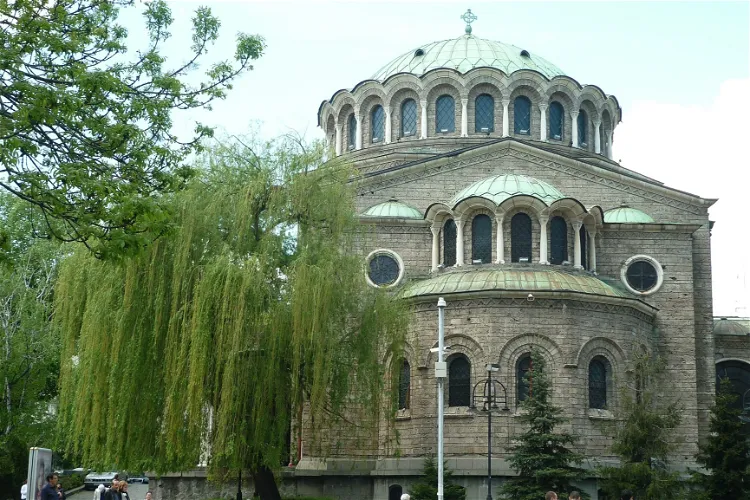
St. Nedelya Church
SofiaSaint Nedelya Cathedral is an Eastern Orthodox cathedral located in Sofia, the capital of Bulgaria. It serves as a cathedral of the Sofia bishopric of the Bulgarian Patriarchate. This religious site is a significant part of the city's spiritual and cultural heritage, offering visitors a glimpse into the rich history and traditions of the Bulgarian Orthodox Church.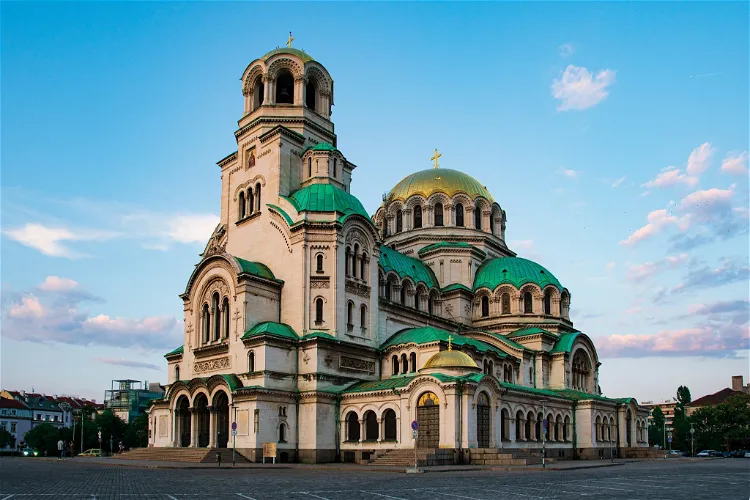
Alexander Nevsky Cathedral
SofiaThe St. Alexander Nevsky Cathedral, located in Sofia, the capital of Bulgaria, is a significant religious and architectural landmark. Constructed in the Neo-Byzantine style, it serves as the cathedral church of the Patriarch of Bulgaria. It is also recognized as one of the 50 largest Christian church buildings by volume globally.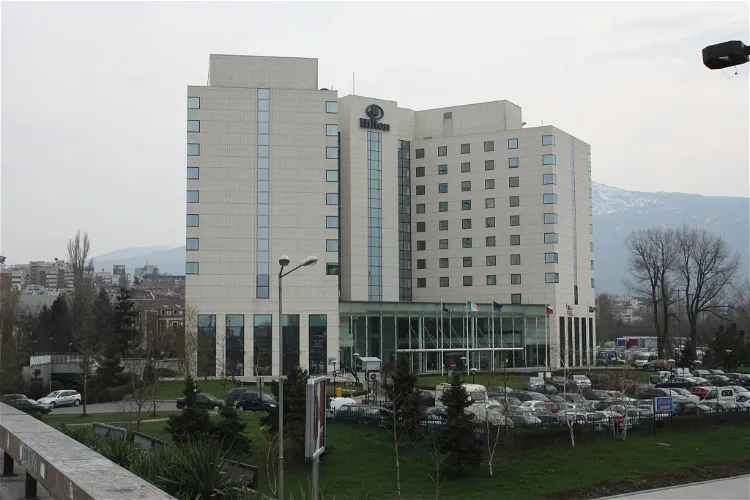
National Palace of Culture
SofiaThe National Palace of Culture, also known by its initials NDK, is a congress palace located in the heart of Sofia, the capital of Bulgaria. It was inaugurated in 1981 to commemorate the 1300th anniversary of the birth of the Bulgarian state. The palace is a significant cultural and historical landmark, offering a glimpse into the country's past and its cultural evolution.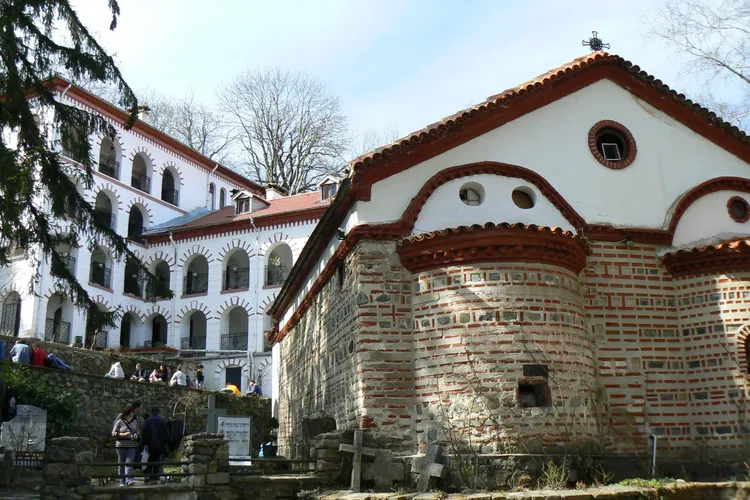
Dragalevtsi Monastery
SofiaThe Dragalevtsi Monastery of the Holy Mother of God of Vitosha is a Bulgarian Orthodox monastery situated on the lower slopes of Vitosha mountain, on the outskirts of Sofia, the capital of western Bulgaria. This location offers a serene and tranquil environment, making it an ideal place for tourists seeking peace and quiet. The monastery's location also provides a stunning view of the surrounding landscape, adding to its appeal for visitors.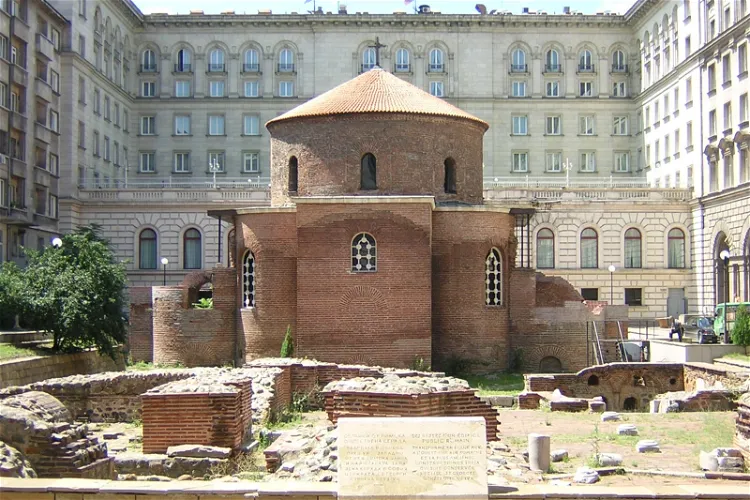
The Rotunda Church of St George
SofiaThe Rotunda of St. George, an early Christian church, is a significant historical site located in the heart of Sofia, Bulgaria. Constructed from red brick, the church is situated in the area known as Serdica, which is the historical center of the city. This location offers visitors a chance to explore the rich history of Sofia and its early Christian roots.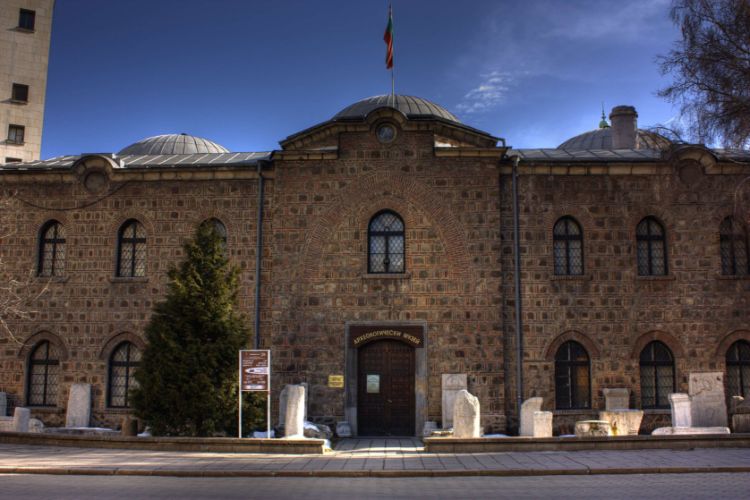
National Institute and Museum of Archaeology
SofiaThe National Institute and Museum of Archaeology (National Institute of Archaeology with Museum in Bulgarian Academy of Sciences) is devoted to the culture of tribes and peoples that have occupied present day Bulgaria from the remote past until the 18th century. The museum is an archaeological museu
Regional Ethnographic museum of Plovdiv
PlovdivThe Regional Ethnographic museum of Plovdiv houses over 40,000 objects mostly relating to the traditions of the population of Plovdiv and its cultural and economic environment. The collection of the Regional Ethnographic museum of Plovdiv includes objects made of copper, pottery, ancient weapons, wo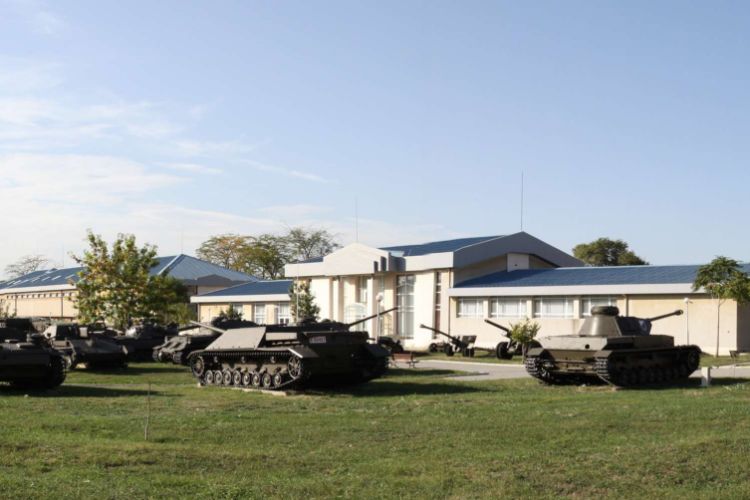
National Museum of Military History
SofiaThe National Museum of Military History (NMMH) is a state museum devoted to cultural valuables connected with the national and European military history. The museum holds a collection with over 1,000,000 objects, including weapons, artillery, armored and motor vehicles, decorations, uniforms, flags,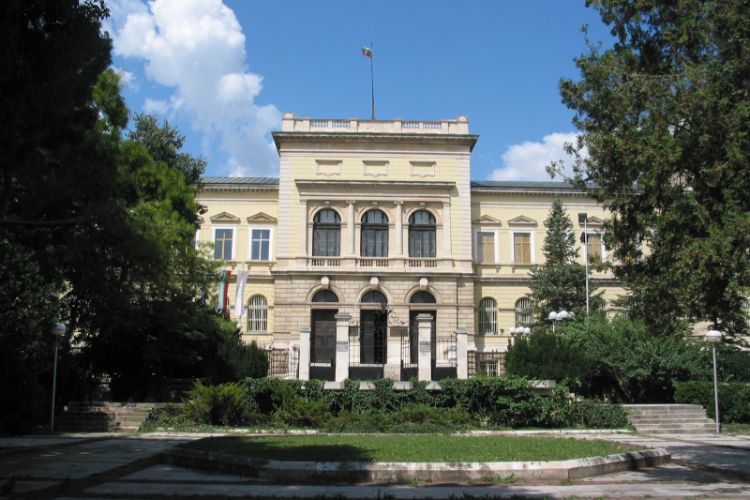
Varna Archaeological Museum
VarnaThe Varna Archaeological Museum is housed in a former Girls’ High School (1892 - 1898), designed by Bulgarian architect Petko Momchilov in New Renaissance style. The museum holds a collection of objects from the prehistoric, Thracian, Ancient Greek and Ancient Roman periods, the times of the medieva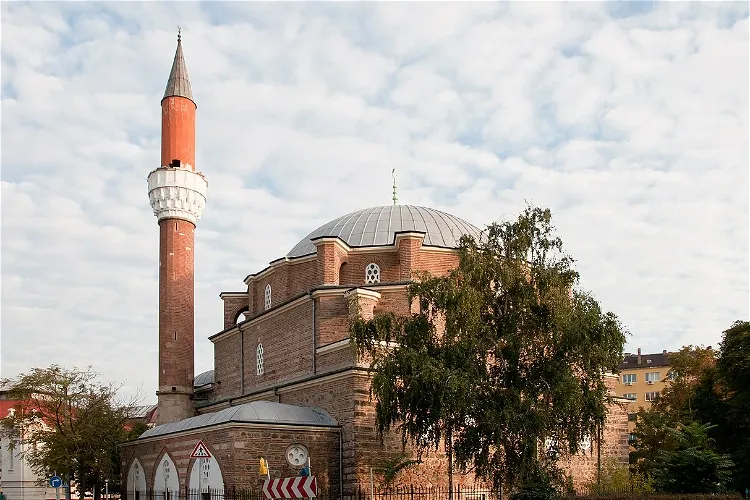
Banya Bashi Mosque
SofiaThe Banya Bashi Mosque, also known as Seyfullah Efendi Mosque, is a significant historical and religious site in Sofia, the capital of Bulgaria. It is the only active mosque in the city and is considered one of the oldest mosques in Europe. This mosque, built during the Ottoman Empire, continues to serve as a place of worship and is a testament to the city's rich history and cultural diversity.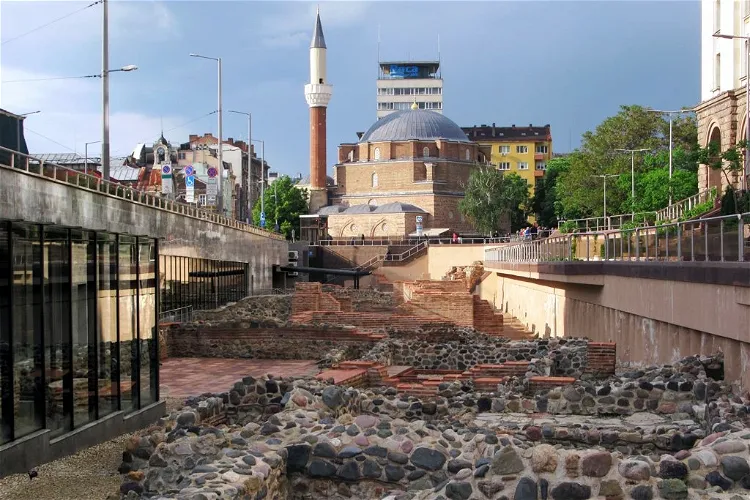
Ancient Serdica Archaeological Complex
Sofia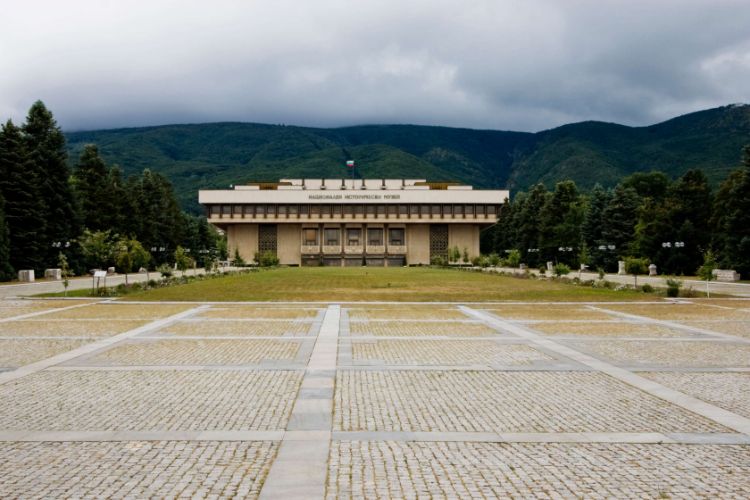
National History Museum
Sofia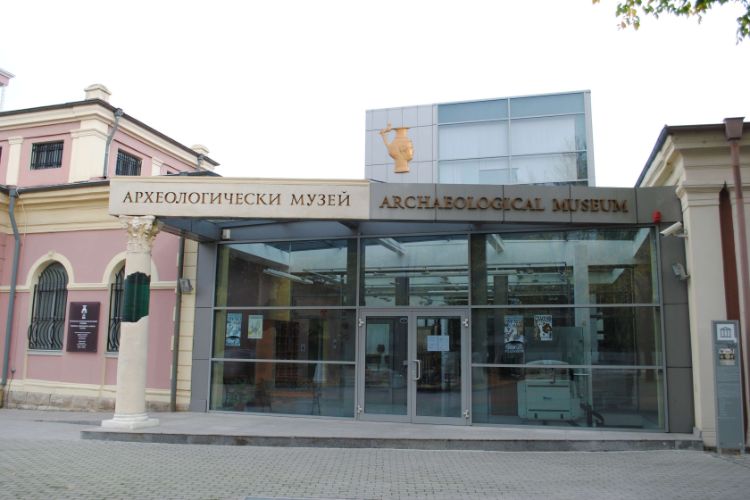
Regional Archaeological Museum in Plovdiv
PlovdivThe Regional Archaeological Museum in Plovdiv is a history museum in Plovdiv that holds a collection of over 100.000 artefacts related to the history of the city and its region. The history of Plovdiv goes back to being the biggest and most famous ancient town in the Balkan Penninsula: Philippopolis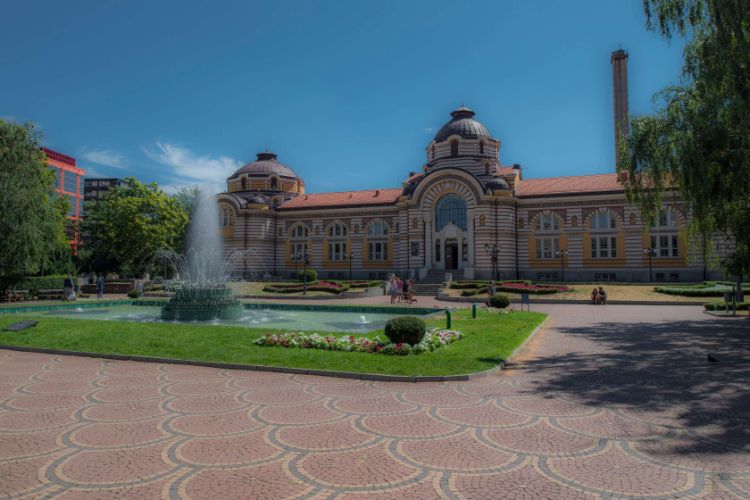
Sofia History Museum
SofiaThe Sofia History Museum is housed in the former building of the Central Mineral Baths and is devoted to ethnography, archaeology, economy, and cultural life in Sofia and its region. The museum has a collection of around 120,000 objects, covering the period between 6th millennium BC up to the1940s,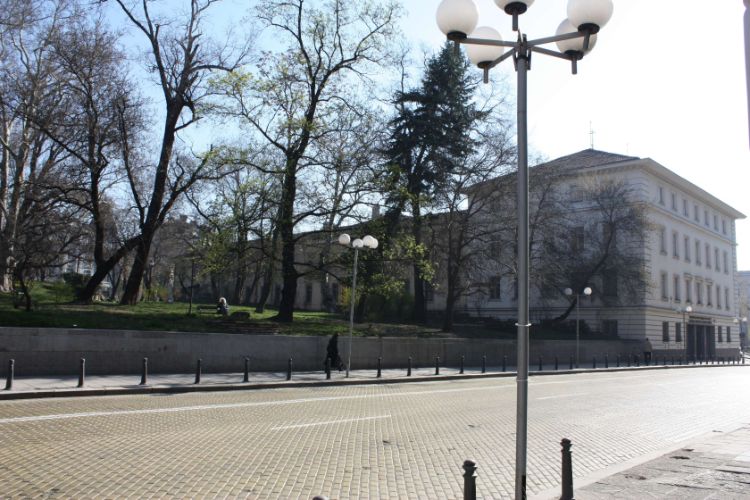
National Museum of Natural History
SofiaThe National Museum of Natural History in Sofia (NMNHS) is the first natural history museum on the Balkans and is devoted to the preservation of scientific collections of live and non-live nature. The museum consists of fifteen halls on four floors. The collection includes a Caroline parrot, a monk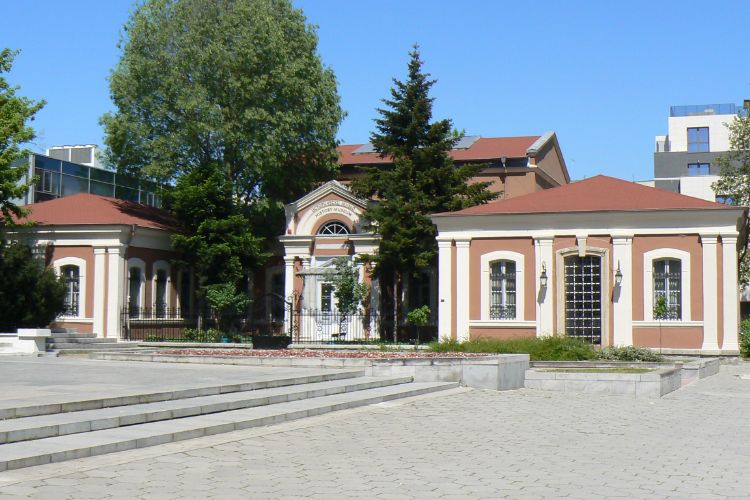
Plovdiv Regional Historical Museum
PlovdivThe Plovdiv Regional Historical Museum (Regional History Museum - Plovdiv) is dedicated to the past of Plovdiv and its region in the period from the 15the century until the 20th century. The museum holds a collection of over 60,000 pieces, including a collections of cold steel and firearms, orders a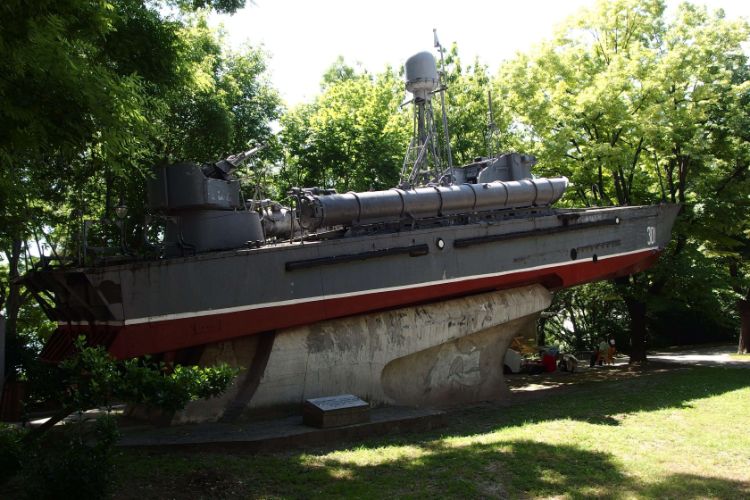
National Maritime Museum
VarnaThe National Maritime Museum is dedicated to the history of the Bulgarian navy, which it illustrates from its establishment in 1879 to the present, focuses mainly on its military side. The collection of the museum includes photographs, documents, anchors, sailor`s and officer`s uniforms, scale model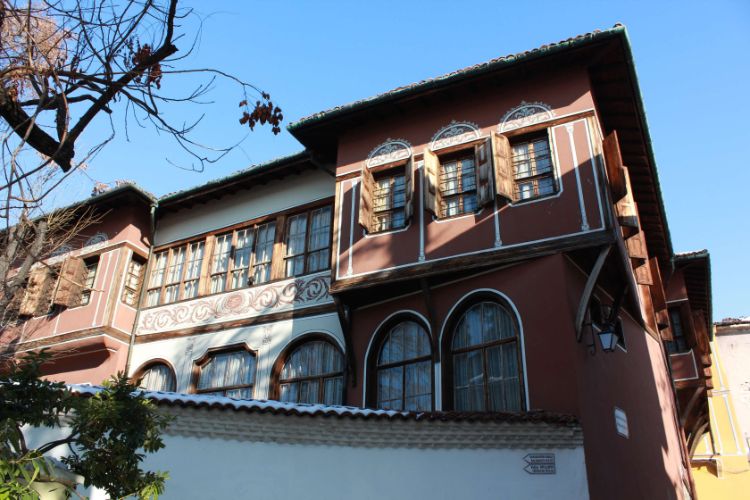
Balabanov House
PlovdivThe Balabanov House was built in the 19th century by wealthy merchant and usurer, member of the tailors’ guild, Hadji Panayot Lampsha and ended up in the hands of the merchant of wood Luka Balabanov, whose name the house bears now. It exemplifies the symmetrical houses from the 19th century that wer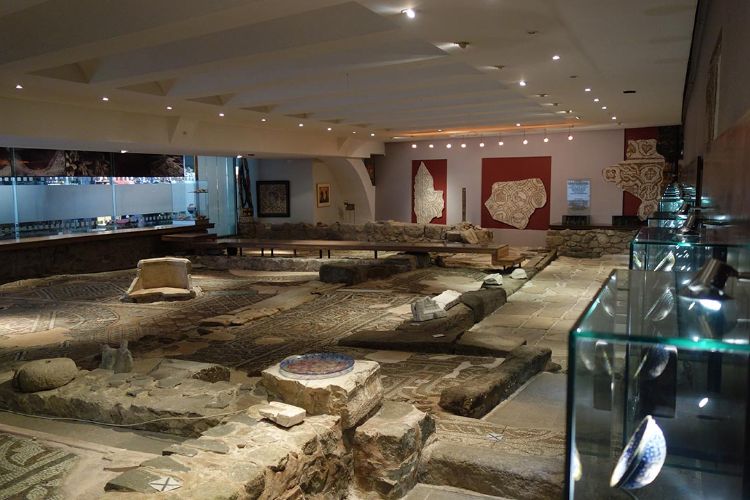
Cultural Center-Museum TrakArt
PlovdivCultural Center-Museum TrakArt is a history museum in Plovdiv. It features 160 square metres “in situ” ancient Roman mosaic from the 3rd - 4th century, an exhibition called 'Glass in ancient art' that illustrates the development of glass manufacturing from the 5th century BC till the 4th century AD,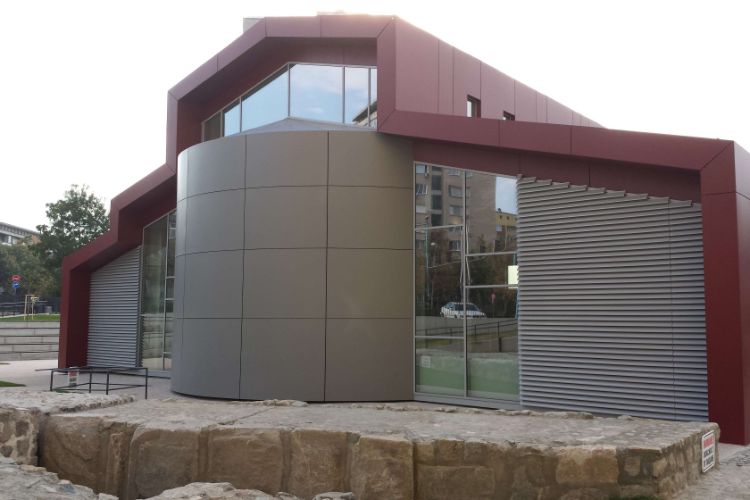
Small Basilica
PlovdivThe Small Basilica in Plodiv, also called The Small Basilica of Philippopolis was an early Christian church. The ruins of the church were found during construction works in 1988. It was a three nave basilica that was built in the second half of the 5th century AD and contained rich architectural dec
Ethnographic Museum Varna
VarnaThe Ethnographic Museum Varna is located in a house that belongs to the age of Revival, built around 1860. The museum presents the variety in culture and style of life of the population in Varna and its region. The museum focuses on the second half of the 19th and the beginning of the 20th century.
National Ethnographic Museum
SofiaThe National Ethnographic Museum in Sofia is housed in the former royal residence in Sofia. The museum holds a collection that includes costumes, goldsmithery, copper objects, agriculture, wood carvings, furniture, ceramics, fabrics and embroideries, carpets, ritual objects and foreign art.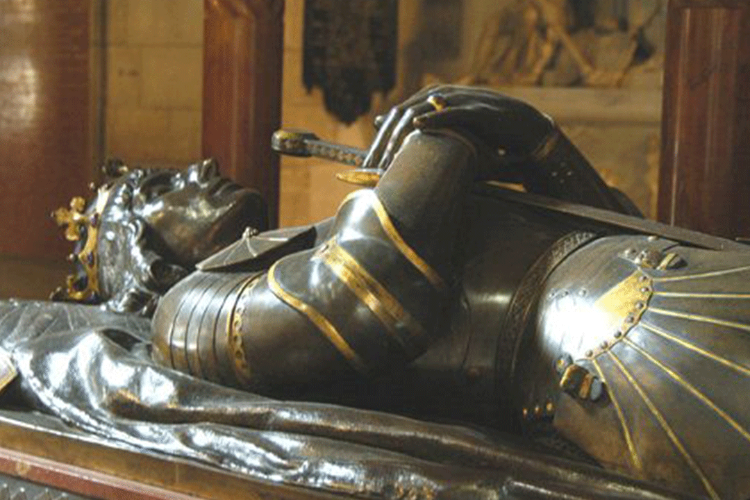
Park-Museum of Military Friendship 1444 Vladislav Varnenchik
VarnaPark-Museum of Military Friendship 1444 Vladislav Varnenchik is located at the place of the battlefield from 10.11.1444 , where the Polish- Hungarian King Vladislav Yagello was killed. The museum holds a collection that contains arms and equipment from the 15th century, found on the battlefield (inc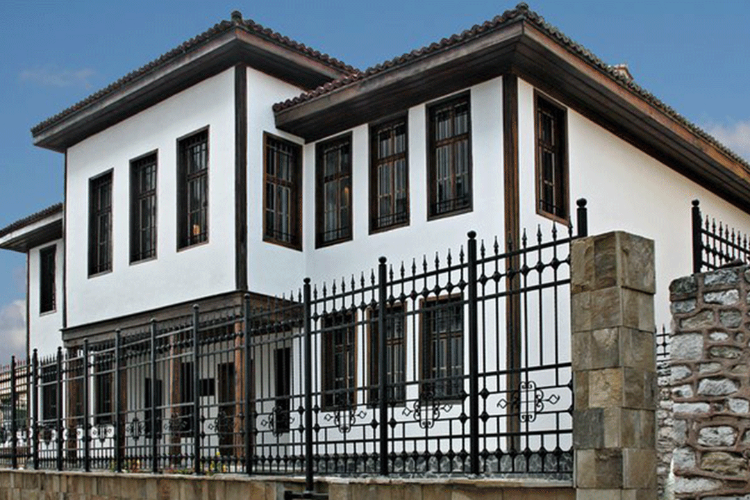
Museum of the Revival
VarnaThe Museum of the Revival is housed in a building from the 19th century, which had several purposes, including being a high school for girls after the Liberation. The museum highlights important moments of the history of Varna and its region during the Revival period in the 19th century. The first f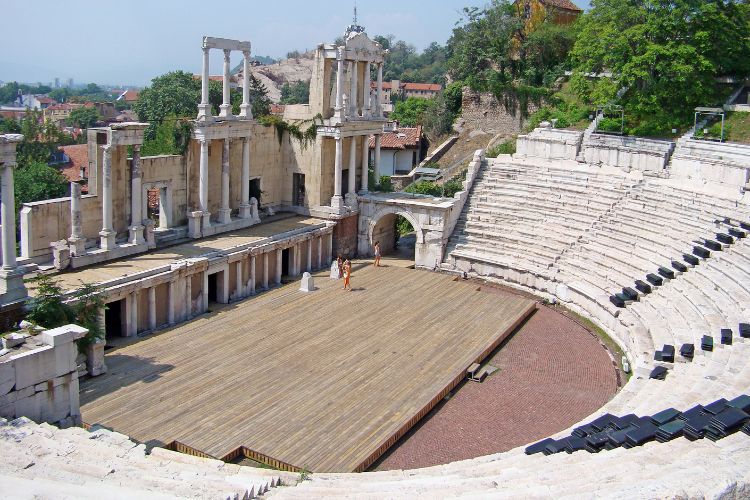
Plovdiv Roman Theatre
Plovdiv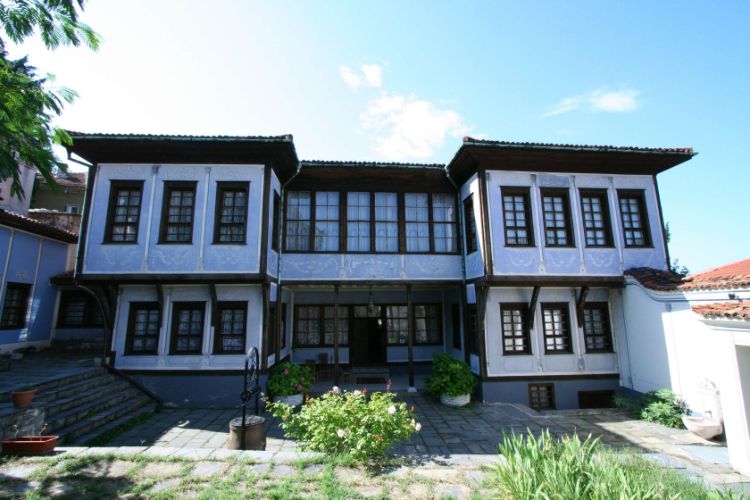
House-Museum Hindliyan
Plovdiv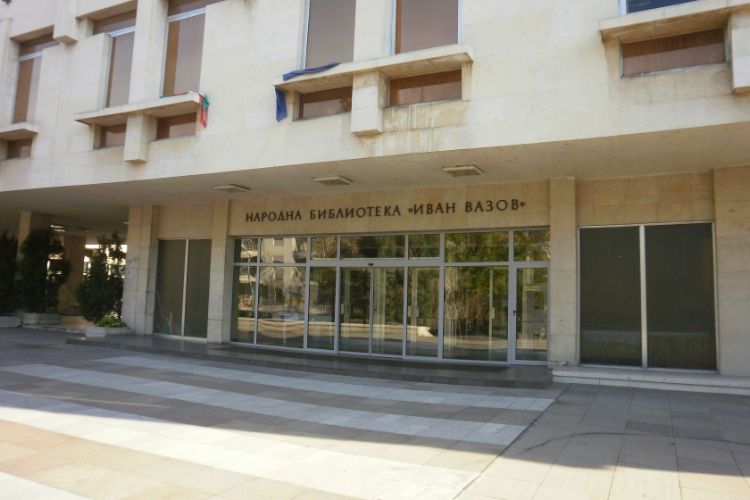
"Ivan Vazov" Public Library
Plovdiv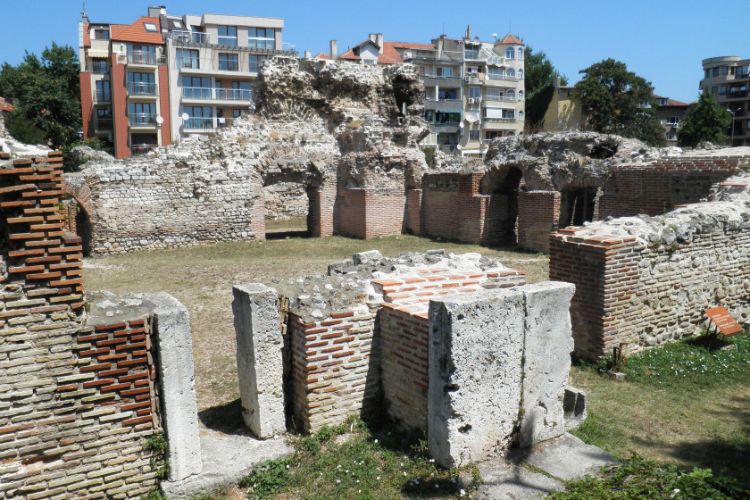
The Roman Baths of Odessos
Varna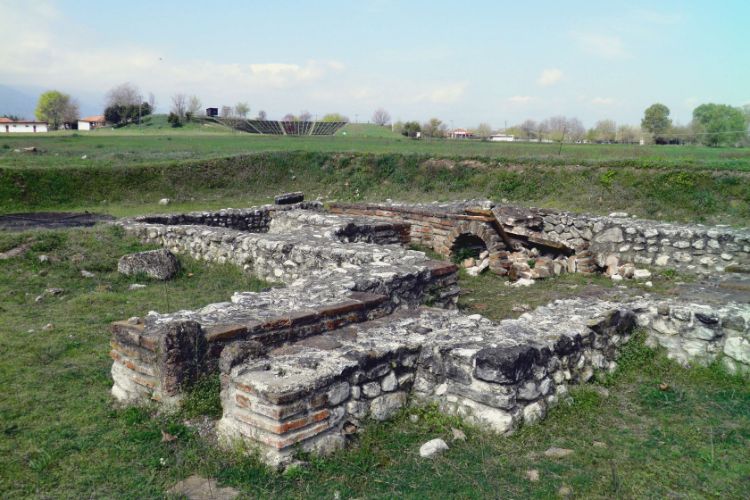
Small Roman Baths
Varna
Aladzha Monastery
Varna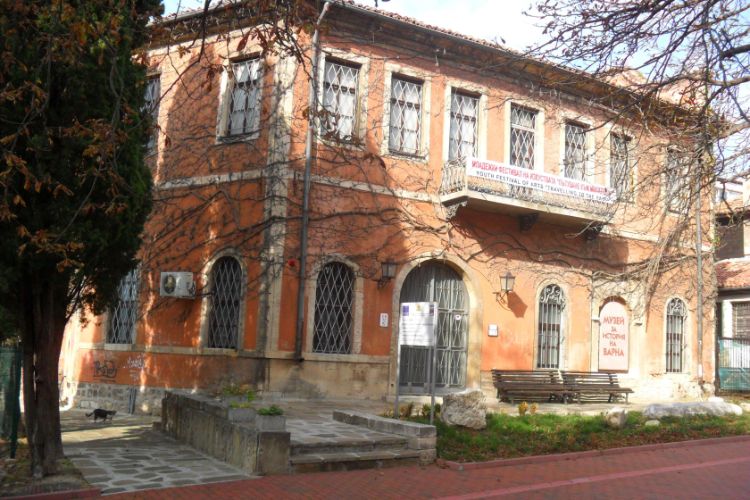
History of Varna Museum
Varna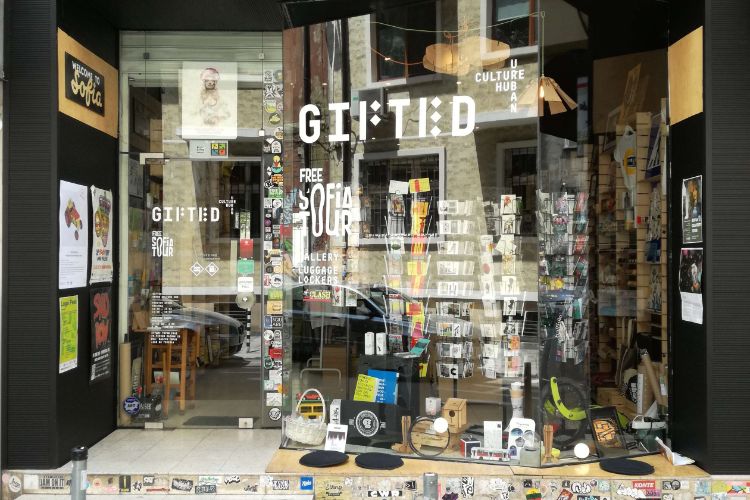
The Red Flat
SofiaEntering the Red Flat means travelling back in time to Communist Bulgaria of the 1980’s. By visiting the home of an average family you will discover what everyday life was like for ordinary Bulgarians during the Cold War. Work and leisure, school and vacation, eating, drinking, watching TV, partying- 33
Museum of the History of Medicine
VarnaThe Museum of the History of Medicine is devoted to the history of medicine on the Balkans, spanning from the Antiquity to the Renaissance and the development of medical services after the Liberation of Bulgaria. The museum holds a collection of over 4,000 medical books, a fine paleoanthropological - 34
Icon Gallery - City Art Gallery
Plovdiv - 35
National Anthropological Museum
SofiaThe National Anthropological Museum in Sofia is part of the Bulgarian Academy of Sciences. The museum houses many reconstructed images of people who lived in Bulgaria, spanning over several periods. The permanent exhibition is is arranged chronologically from Prehistory to Antiquity to Middle Ages a - 36
House-museum Pancho Vladigerov
SofiaThe House-museum Pancho Vladigerov is devoted to the Bulgarian composer, pedagogue, and pianist Pancho Vladigerov. The house-museum holds a collection that includes photos and documents related to the composer and features restorations of the original rooms of his house. The rooms are restored to w - 37
Ancient Plovdiv Municipal Institute
Plovdiv - 38
The Laboratory Village
Sofia